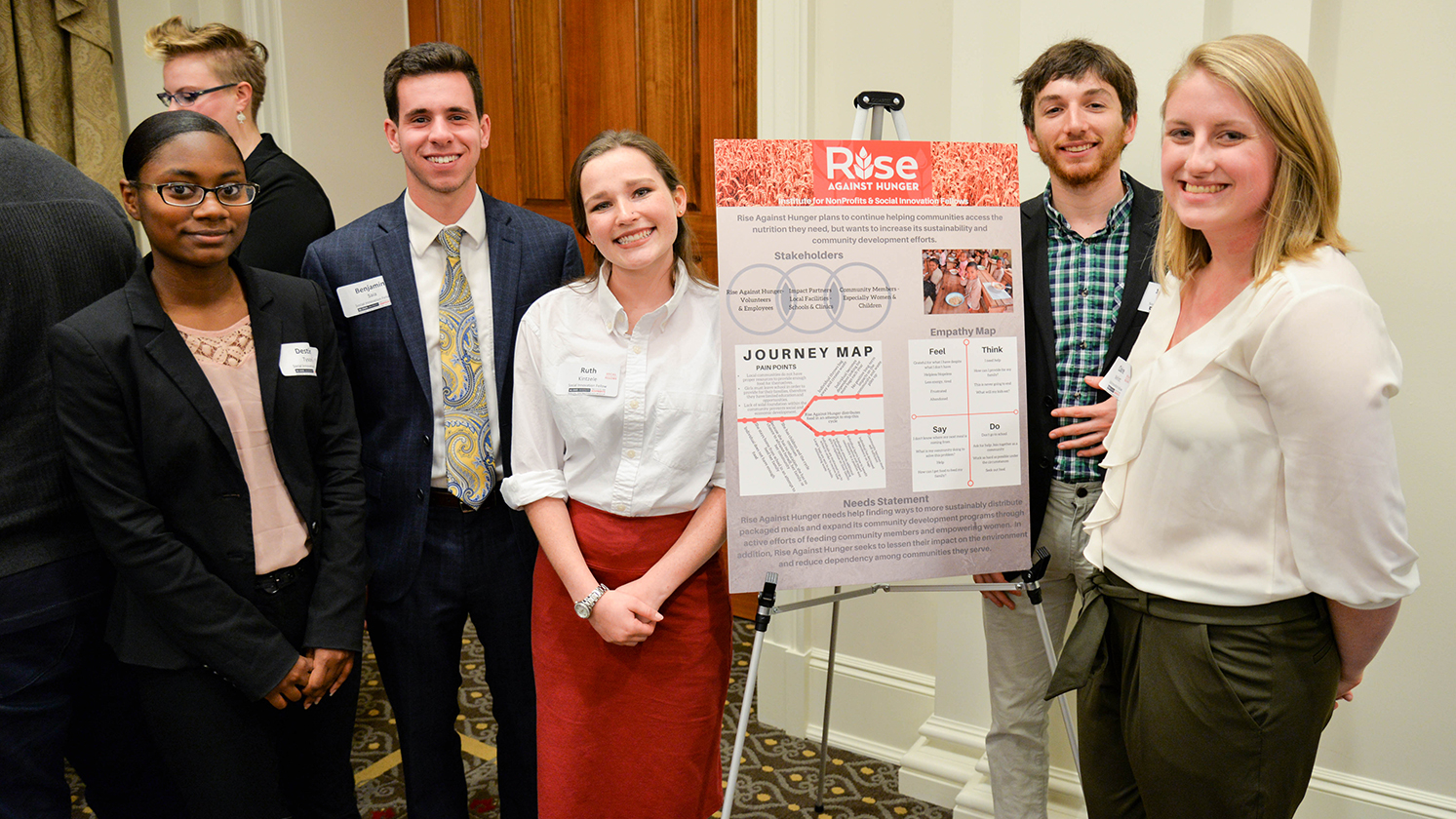Social Innovation Students Tackle Issues Related to Food and Water

In early fall, 30 students were selected to join the first cohort of the Social Innovation Fellows. The program, supported through the Institute for Nonprofits, pairs student teams with nonprofits and projects tackling issues related to food and water insecurity. Teams are given a small investment of $1,000 to develop and prototype their ideas.
“The program was started because of students,” said Rich Clerkin, executive director for the Institute for Nonprofits. “They wanted to make a difference.”
The interdisciplinary teams are supported by Aly Khalifa, the Institute’s social entrepreneur-in-residence and the Brain Trust, a group of campus leaders and local entrepreneurs.
“As an Arab-American, I loved when I looked around the room and saw race balance, age balance, gender balance, and even educational and vocational balance,” said Khalifa. “There is such a wide range of projects and people.”

Poole College of Management student Sofia Abdo credits the program with helping her discover her passions and career goals. “It’s become a platform for us to pursue our passions,” said Abdo. “There’s an equal exchange between students and industry experts and I think that is the most important part. It’s definitely played an integral part of me learning more about my career.”
In December, the Fellows presented their semester progress to the Brain Trust and other supporters.
Local nonprofit Wine to Water has committed to providing clean water to over one million people by 2019 by providing water filters to areas without access to clean water. Fellows are working with Wine to Water to provide filter use and cleaning instructions in more languages.
Freshspire is a platform designed to reduce food waste by grocery stores and restaurants. Fellows are working with the nonprofit to expand contacts, suppliers and restaurants that are interested in adopting the platform.
The Haiti Goat Project combats child malnutrition by providing animal-based foods to school lunch programs. The Fellows are working to diversify funding sources by launching a food product for sale in the U.S. and using the profits to invest back into the Project’s mission.
FWAFI at NC State (Food Waste and Food Insecurity)
The FWAFI team’s research has determined that as many as 6,000 NC State students suffer from food insecurity. The team aims to reduce food waste on campus, working closely with the university’s agriculture department and farms.
Rise Against Hunger is working to find a more sustainable way to distribute packaged meals to those in need. Fellows are working with the team to increase community sustainability efforts.
Ocean Works
The Ocean Works team is working with Fellows to collect plastics littered in oceans and waterways and transform them into usable sustainable products.
Teams will continue working with their nonprofit or startup through the spring semester. Both attendees and Brain Trust members were pleased with the students’ progress.
“[Social innovation] is a flavor of entrepreneurship that is less visible and more challenging,” said Marshall Brain, director of the Engineering Entrepreneurs Program and Brain Trust member. “It’s fascinating how many students are interested. The amount of energy and the range of the projects is amazing.”
This post was originally published in Entrepreneurship News.